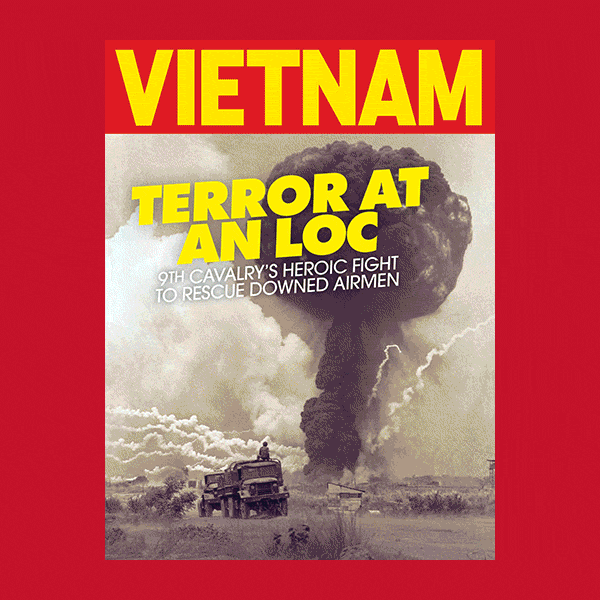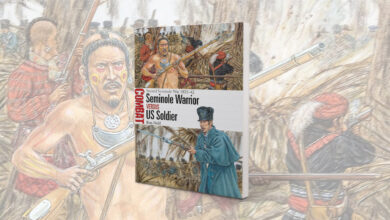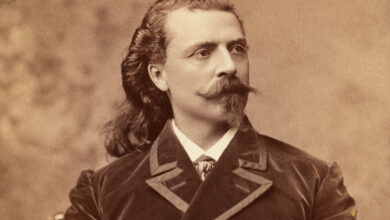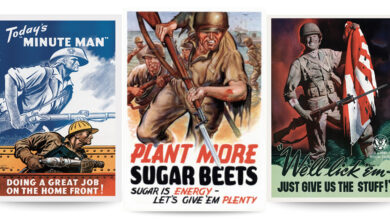
[ad_1]
Willie Johnson was a 35-year-old African American from South Carolina with a wife and six kids. What did I, a 20-year-old single white kid from Quincy, Mass., have in common with him, other than being stationed in Vietnam with the 11th Armored Cavalry Regiment? Well, living with someone in an Armored Cavalry Assault Vehicle (ACAV) for five months will make for close relationships.
Willie was a career soldier, our first sergeant, a leader, advisor, confessor, and friend. He was firm but fair and full of life. He taught me to play pinochle, a card game I never played before and have never played since. I never called him Willie, but always “Top.” He was killed by a rocket propelled grenade (RPG) a few feet from me.
Near the Cambodian Border
On March 5, 1970, we moved from a location near the Cambodian border to a place just four or five miles away. The rolling terrain was a challenge for our 12-ton armored vehicles. We arrived at our night defensive position just before dusk and deployed our 20 ACAVs similar to how covered wagons would circle in Western movies. The track commander was Capt. Max Bailey, who sat on top of our vehicle behind a .50-caliber machine gun. The driver was Don, whose last name I forget. Top and I were the rear gunners behind M60 machine guns. I dismounted our track, set up trip flares covering our part of the perimeter, and positioned Claymore mines in front of our vehicle.
We had been in constant contact with the enemy for months and were always prepared for battle. Our enemy was not the Viet Cong but the North Vietnamese Army (NVA), and we never knew where or when they would hit us. I was still awake at probably around 10:00 p.m. when I heard the distinctive thump of a mortar tube being fired. Seconds later the first rounds hit in and around our perimeter. This was followed immediately by a barrage of enemy AK-47 and RPG fire.
We responded with volleys of machine gun and tank cannon fire. With 20 vehicles firing at once, the sound was deafening and the smell of cordite filled the air. Ground and aerial flares lit the night sky. Claymore mines exploded all around as the enemy closed in. The enemy attack died down after about 20 or 30 minutes. Bailey dismounted our vehicle and walked the perimeter to check on damage and wounded. Top, Don, and I pulled up more ammunition for our weapons.
The Fateful Call
Top received a call from Bailey that some enemy wounded had been spotted in a bomb crater a few ACAVs down from us. We had a directive from our headquarters’ G-2 Intelligence that if possible we should take prisoners for interrogation. Top would never order someone to do something he wouldn’t do himself. So he jumped off our vehicle and told Don and me to follow him to get more information. Bailey confirmed there were two or three NVA wounded about 20-40 meters from our perimeter.
Without blinking, Top said: “Let’s go get them.” So Top, Don, Bailey, and I lined up about five meters apart and headed for the bomb crater.
We made it about halfway to the crater when a figure jumped up with an RPG and fired at us. The rocket landed between Top and Don who were at the end of our line. We received more mortar and RPG rounds, followed by small-arms fire. I hit the dirt and returned fire at the shadowy figure. I lost sight of the other three as bullets whistled above me. I was caught about 20 meters outside our perimeter.
Bad News
Just as concerned about friendly fire from behind as enemy fire in front, I crawled back to our perimeter. I looked for Top, Don, and Bailey but couldn’t find them. As the battle raged, I returned to my ACAV, took my position and continued to return fire. When the other three hadn’t returned, I assumed they jumped on other ACAVs to continue the battle. Eventually things quieted down. This time we were sure the enemy had retreated.
Some time later, Bailey returned to our vehicle and told me that Top was killed by the RPG round and Don was wounded. Bailey was also wounded but continued to lead the battle and was awarded the Silver Star for his efforts. I was stunned. I had been in country for 10 months and through a lot. Although other men in my unit had paid the ultimate sacrifice, this was different.
Because I was so close to Top, it hit me hard. What made it worse was having to stay alert and man my vehicle in case of another attack. There was nothing I could do except live with the thoughts going through my head. You don’t plan for someone to get killed so you don’t know how to react.
At first light I went over to the medical area and saw Top’s body on the ground covered with a rubber poncho. I can’t remember if I cried, but I was in a state of disbelief. Here was a person I truly respected, confided in, told stories with, and a few short hours earlier had been laughing and joking with, and now he was gone.
A Step Closer to Closure
At my computer about 33 years later, I went to the 11th Armored Cavalry website and scrolled to Top’s name on a list of 700 troopers killed in Vietnam. Over the years I’ve thought about him many times and wondered about the family he left behind.
I saw a message that made me freeze. It was signed by a Ricky Johnson who wanted to hear from anyone who had served with his dad. I summoned the courage to give Ricky a call. It was extremely emotional. Ricky was 11 years old when his father was killed, and the Army never told the family how he died.
It was difficult for me to recount the events, but it was a step closer to the closure that neither of us will probably ever achieve. Memories fade with time but for the rest of my life I will remember my friend Willie and all that he taught me. To all the Willie Johnsons who never came home, may you always be remembered.
Adapted from the author’s book, 11B10: Memories of a Light Weapons Infantryman in Vietnam.
This story appeared in the 2024 Winter issue of Vietnam magazine.
[ad_2]
Source link





